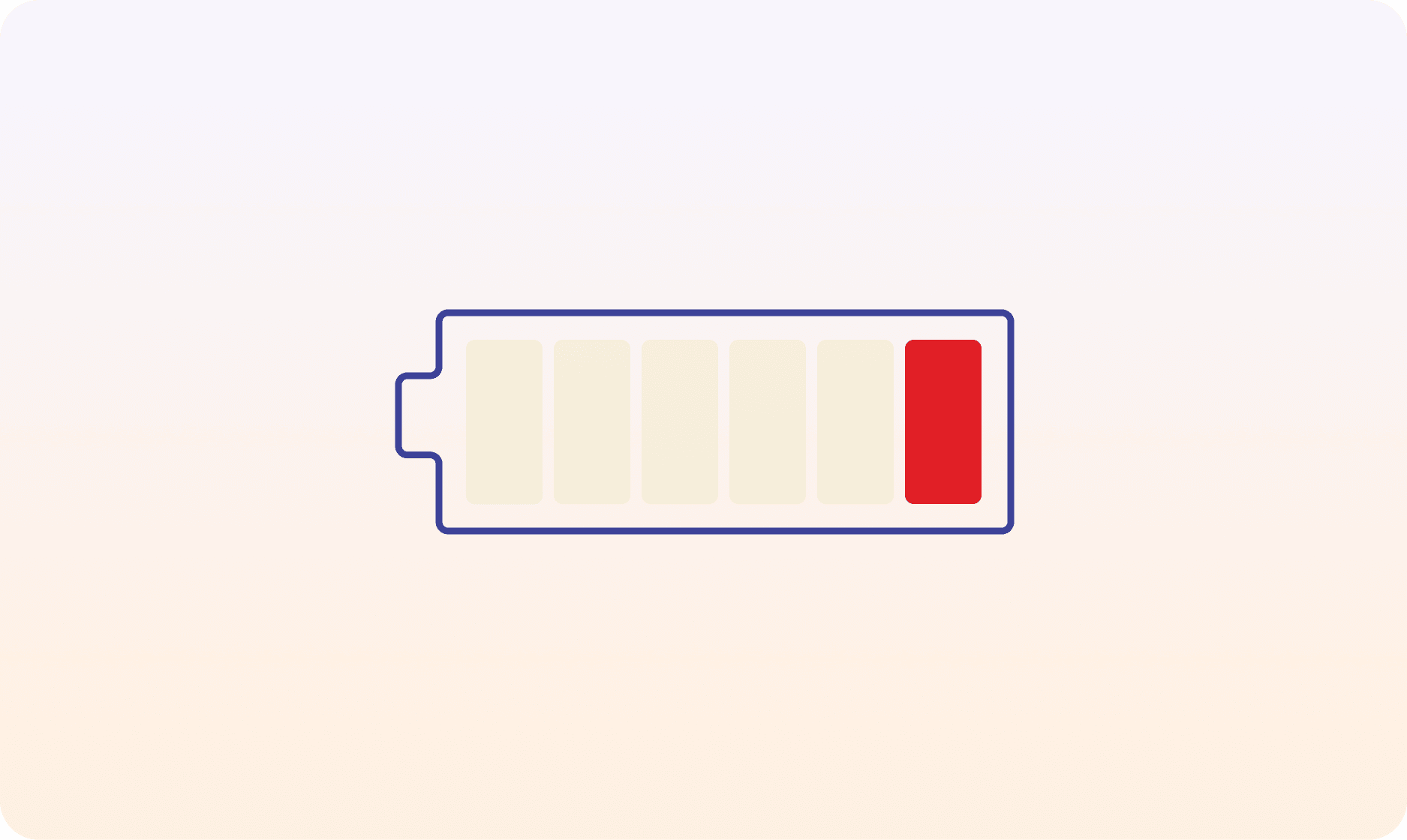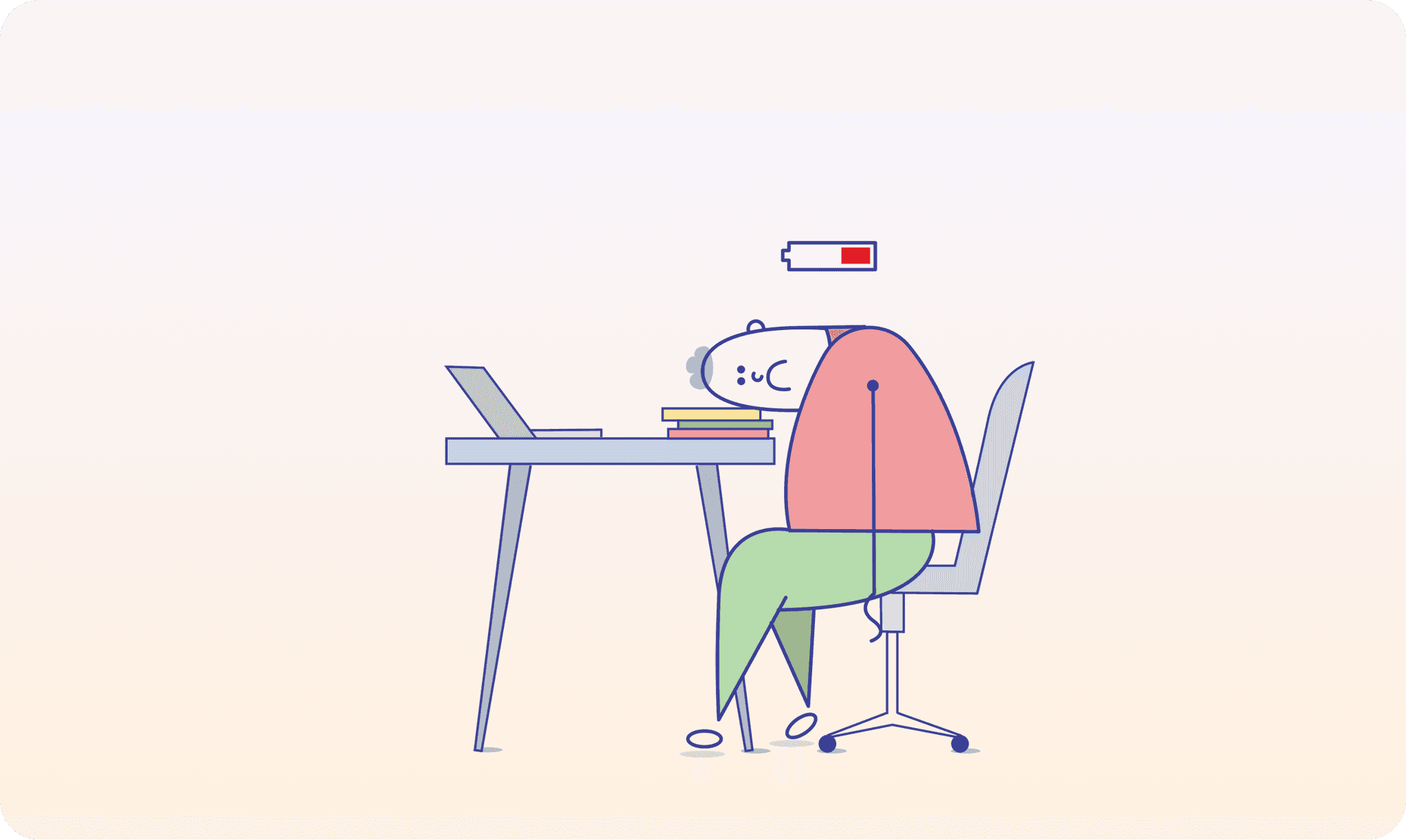6 habits that lead to burnout
Mar 24, 2023

Imagine this. You've taken some time off from work, and you have a full day of fun ahead of you. But just as you take a deep breath to start your day’s activities, your Slack notifications go off. You think, "I'll just quickly look at them", but before you know it, you've spent an hour on Slack, and your vacation mood has gone out the window.
If that little scenario felt a little too real, you’re not alone. Checking your notifications non-stop is one of those habits—simple but with substantial consequences—that can lead to burnout. There are plenty of other practices we’ve unconsciously built at our workplaces.
There’s no crash course on how to build good habits at the workplace. However, James Clear said, “habits are small decisions you make and actions you perform every day.” How happy or unhappy we are is a result of our habits at any given point.
So here's the question we have to ask ourselves. How can we better manage and stop burnout in its tracks, through our habits, before it spirals out of control.
Habits that can lead to burnout
Overlooking your internal clock
Imagine you spent hours working on a project with little progress and decide to come back to it the next day. Surprisingly, you make significant progress within a few hours of starting work. Sounds familiar? That’s all your internal clock’s doing.
Your internal clock is the difference in productivity on any two or more days. Understanding when you’re super productive can stop you from overworking yourself. It also helps you prioritise high-thinking tasks for when you're most alert and the hum-drum ones for when you're waiting for the day to end. You may have multiple hours in a day where your creativity or productivity spikes, and that’s okay. There’s no universal “right” time. Trust your internal clock!
Disregarding your basic needs
If you’ve read Maslow’s Hierarchy of Needs, you know what we’re about to say. Every human has deficient needs and growth needs. These include having a balanced diet, getting sound sleep, ensuring personal safety and connecting with your friends, family and community. Your motivation to get work done and valuing your basic needs are concurrent to one another. If your body's basic needs aren't being met, burnout arrives faster than it would've otherwise.
Being glued to your desk
We get it. It’s easy to get lost in a pile of work when you’re working on meeting deadlines. But spending hours at a stretch on your desk is counterproductive and unhealthy for your overall well-being. If you're always chained to your desk, chances are you might feel stressed and working ineffectively. You might feel worried about being stressed at work, and it's downhill from there.
Change is constant, and it’s only natural to shift your surroundings timely to improve your convergent thinking abilities and unlock greater productivity. So move a little, take a breather, hydrate, stretch and go on a short walk.
Not scheduling "me time" during work
Scheduling "me time" even during working hours is essential. Your colour-coded calendar should give you the flexibility to work the way you like.
As counter-intuitive as it sounds (self-care? During work hours?), scheduling "me time" during work improves your engagement at work. This alone time improves concentration and becomes space for deep thinking, creative problem-solving and better prioritising. In the long run, these few hours will collectively prevent burnout.
You can make time for yourself by blocking few hours to do deep work, setting official office hours, taking built-in breaks to replenish yourself and moving away from your desk when it's time to break for lunch.
Not taking time off
Taking time off from work to focus on yourself is crucial, especially when the lines around work-life balance start to blur. It might feel like you're on top of things, but the fall from the top can be fast and dangerous. Giving yourself regular opportunities to reset can work wonders on your productivity, creativity and overall motivation!
Saying yes to everything
When was the last time you said no to a request from a teammate, supervisor, or client? We know, it can be tough. But to sustain productivity, it's essential that we learn to draw lines in the sand to protect our needs and goals. If directly saying 'no' feels overwhelming, we'd recommend suggesting an alternative. It never hurts to evaluate your time and energy reserves before taking on new work.
Where to go from here
If you’re looking for ways to change these habits, we'd recommend you start with awareness. We've found that keeping a mental note of how often you engage in these habits and what nudges them will make you more sensitive to how they’re contributing to your behaviour. The goal is to not be too hard on yourself. It’s to observe how often they happen.
Breaking patterns is mostly about perseverance. Focus on changing your typical day, and your life changes automatically as a side effect!


